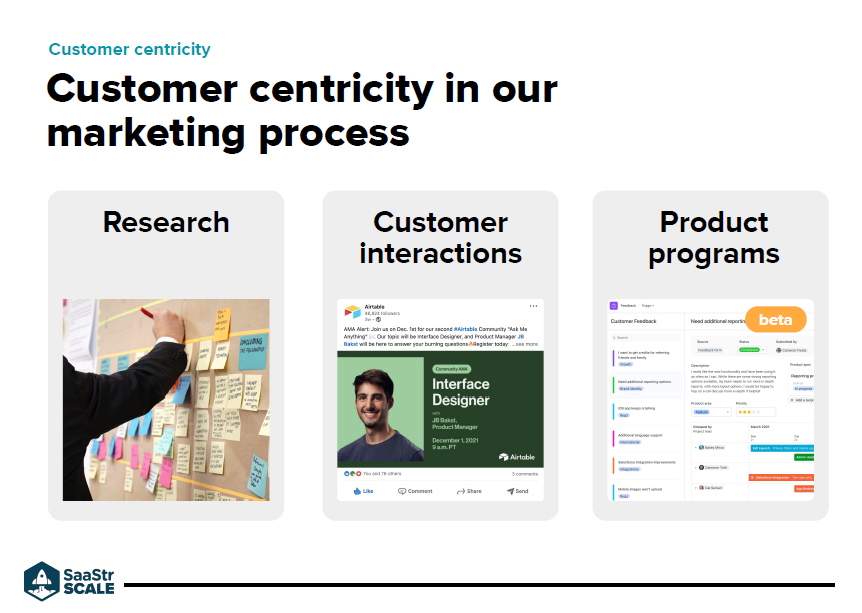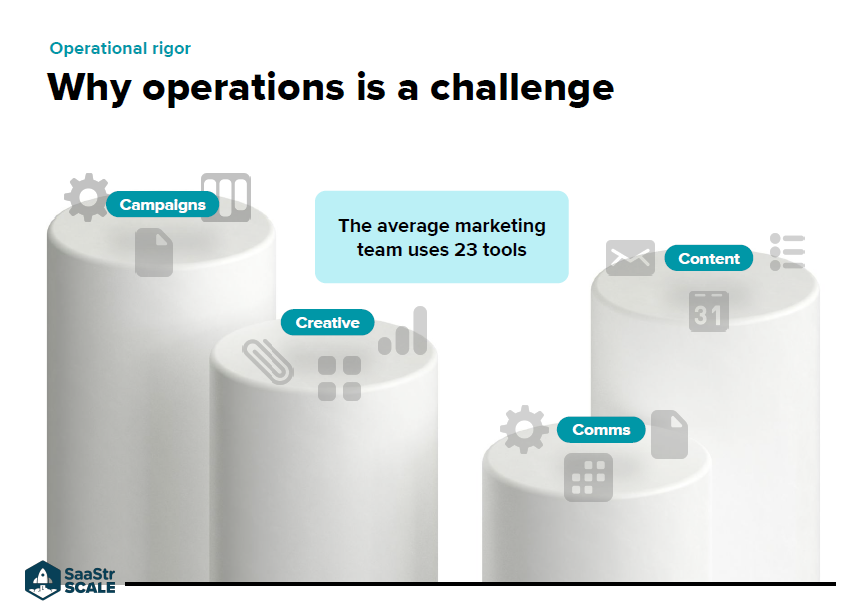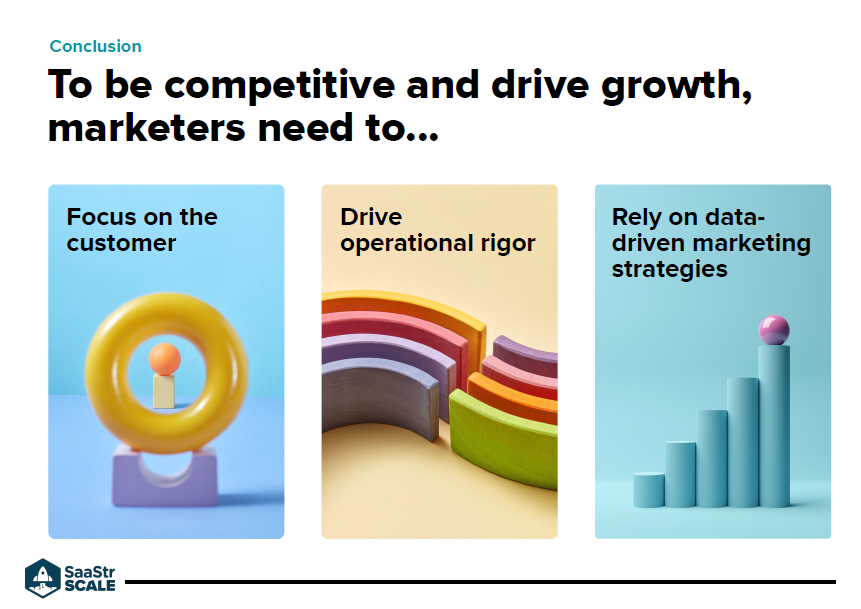People do not want to buy one-size-fits-all solutions. Rather, they are looking for something flexible and adaptable to their unique needs.
When marketing teams spend the bulk of their time completing manual tasks, data gets siloed, workflows break down, and leaders do not have the visibility they need to make customer-focused decisions.
Airtable’s CMO Archana Agrawal shares how marketers can tackle these challenges to develop solid marketing foundations for rapid customer acquisition and growth. She reveals how customer centricity, operational rigor, and data-driven strategies drove Airtable to scale and serve over 300,000 organizations, including 80% of the Fortune 100.
As a marketer, I bring new products to market. I figure out whether we’re ready to launch by understanding the customer feedback we’ve received, even before the product is available through our beta programs.
Use a customer-centered focus to shape your approach.
In the digital age, customers have a multitude of touchpoints with brands. This means marketing needs to be flexible to provide the best possible experience as customer buying behaviors change over time.
Here are ways your team can put this in place:
- Be deliberate in your customer engagement. Use customer conversations and language in your marketing to ensure that their voice shapes your program.
- Examine points of feedback from customers. Once the features of your program start coming together, figure out what resonates and use that feedback to scope your launch.
- Differentiate yourself by increasing relevance. If you want your marketing to differentiate itself, you need to personalize it and make it relevant. Personalizing your content and value proposition allows you to target the right audience.
Marketing needs to be the interface between the customer and the company. That customer-centricity needs to be at the core of marketing.
Operational excellence is essential for modern marketing.
Our business needs are perpetually changing. For us to evolve effectively, agility and operational excellence are at the core of our DNA.
This process is complex. When teams receive additional responsibilities, they do not always have the resources to tackle them. Instead, they end up caught in the details of how to complete tasks rather than focusing on serving their customers.
Airtable recently ran a survey that found marketing leaders spend over a day and a half of their work week completing manual tasks using an average of 23 tools to get the data visibility they need. When teams work independently like this, it results in siloed data, making it difficult to see the impact.
Simplifying your operational workflows is essential for modern marketing. Airtable considers operational excellence a necessity. I recommend taking a progressive approach to ensure that your teams always move in the same direction and operate with speed.
Automate as much as you can to limit time spent on manual tasks. Invest in your tech stack so that you keep growing while you scale.
Rely on data-driven marketing strategies to understand customer consumption.
The volume, velocity, and variety of things you do will continue to increase. The best way to know you are focusing on the right things at the right time is to use a data-informed approach.
Developing a solid, data-driven strategy is key to making informed decisions for your marketing engine. Once you realize what works and what does not, you can use that data constantly to iterate and improve. At Airtable, all of this information flows between our research, product, and marketing teams who work closely together. We believe all teams must operate from the same underlying data, no matter the complexity of your market stack.
For example, we have used robust, qualitative surveys to figure out what features new users will enjoy. This feedback includes:
- where they like to consume content
- how they interact with content
- what effects does this have on their day-to-day work
These are the metrics we follow across all channels to help deepen our customers’ familiarity with the product.
Use data to personalize touchpoints and increase relevance. Then, focus and invest in the simplicity of the customer journey, so when they experience the product, you don’t lose them in that process.
Key takeaways
As marketers, we must quickly validate decisions and scale programs as needed. But we also need our customers to understand the product, its usage, and best practices.
To make the most impact, your teams must be flexible and responsive to customer needs. Start with data-based strategies that help you gain insight into evolving customer behaviors. Centralize this data so that all your teams have visibility to make informed decisions. Automate and streamline any internal operations to prevent missed opportunities to engage.
By understanding your marketing engine, your teams can effectively prioritize and build a plan around the content that is relevant for your consumer’s journey.
Listen to the full discussion with Archana Agrawal on YouTube or subscribe to weekly updates from SaaStr.




